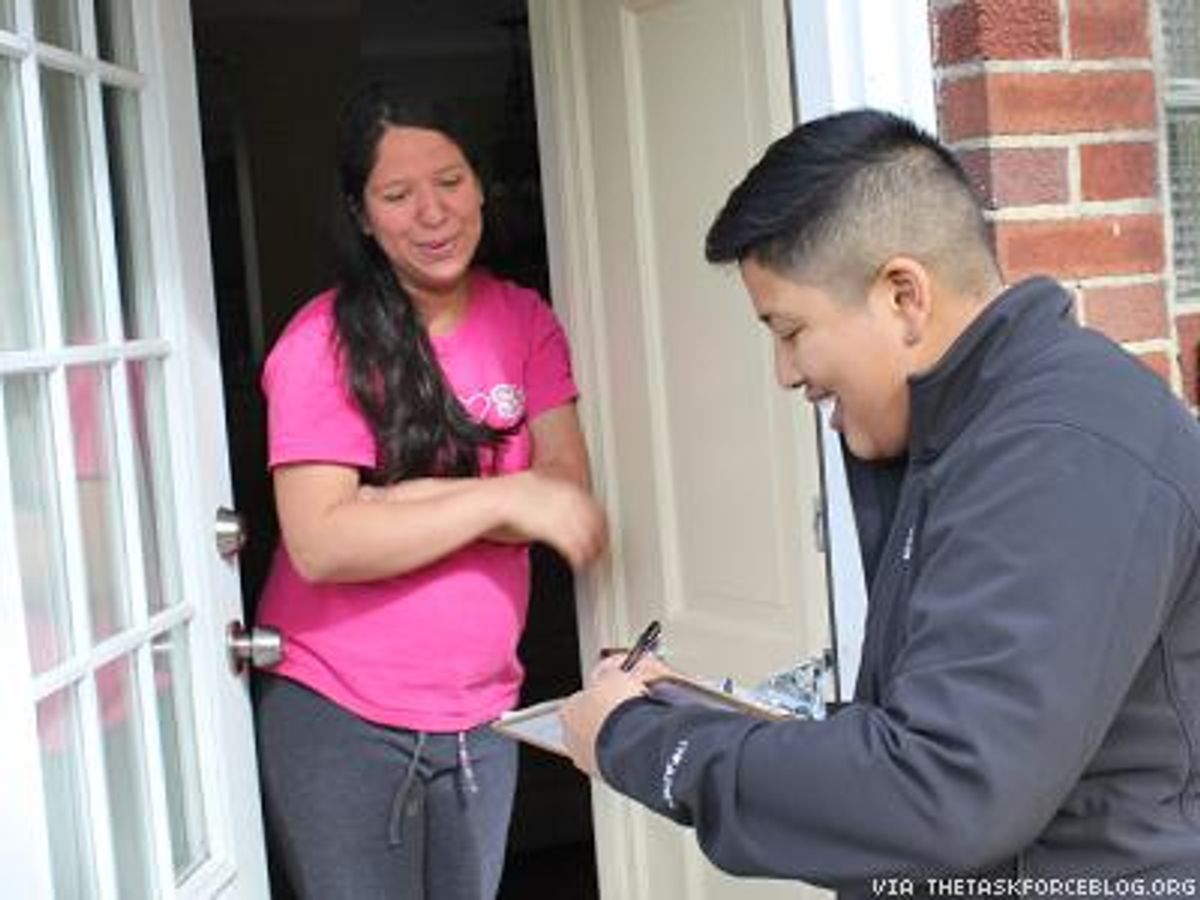It's long been acknowledged that having an LGBT friend or family member reduces bias, but even brief face-to-face interactions can change minds on one of our issues -- marriage equality, a new study indicates.
In the study, canvassers from the Los Angeles LGBT Center visited selected voters in neighborhoods where the anti-marriage equality measure Proposition 8 had passed by a 2-to-1 ratio in 2008. The voters had already been surveyed on their attitudes on various issues, including same-sex marriage, then randomly assigned to receive a visit from a canvasser who would discuss either marriage equality or recycling, or not have a canvasser visit at all.
"Instead of robotically delivering the message, we coached canvassers to be respectful, to listen, to ask questions and dig deeper, and not to judge voters," Dave Fleischer, director of the leadership lab at the LGBT Center, told The New York Times. The canvassers were not asking people to vote a certain way or sign a petition, merely to change their minds -- and their effort appears to have worked.
"Voters canvassed on marriage shifted by about 20 percent in favor of same-sex equality, as measured on a five-point scale of support," the Times reports. "Both straight and gay canvassers shifted opinions, but only the opinions of voters canvassed by gays remained as favorable on surveys nine months after initial contact." Others within the household became more supportive of marriage equality as well.
"This was a really great way to test out what is the causal effect of talking to a gay person," lead study author Michael LaCour, a doctoral student at the University of California, Los Angeles, told The Washington Post.
Coauthor Donald P. Green, a professor at Columbia University in New York City, told the Post that for the people canvassed, "the mental image that came to mind when they thought of a gay person or lesbian was permanently changed by this conversation."
"We're able to reduce prejudice in a way that lasts," Fleischer added in an interview with the Post. "That's promising."
Todd Rogers, a Democratic strategist as well as a professor at Harvard University's Kennedy School of Government, who was not involved with the study, told the Times he found it impressive. "There's a whole infrastructure across the political spectrum devoted to changing people's attitude and beliefs on important topics, and this has obvious implications," he said. "You want a messenger for whom the issue is of personal relevance."
The study, released today, is being published by the journal Science. You can watch Green discussing the findings here.
LaCour is pursuing similar studies on other issues, the Post reports. He just finished one that found people became more supportive of abortion rights after speaking with a canvasser who'd had an abortion, and his next project will focus on opinions regarding undocumented immigrants.

















































































Viral post saying Republicans 'have two daddies now' has MAGA hot and bothered